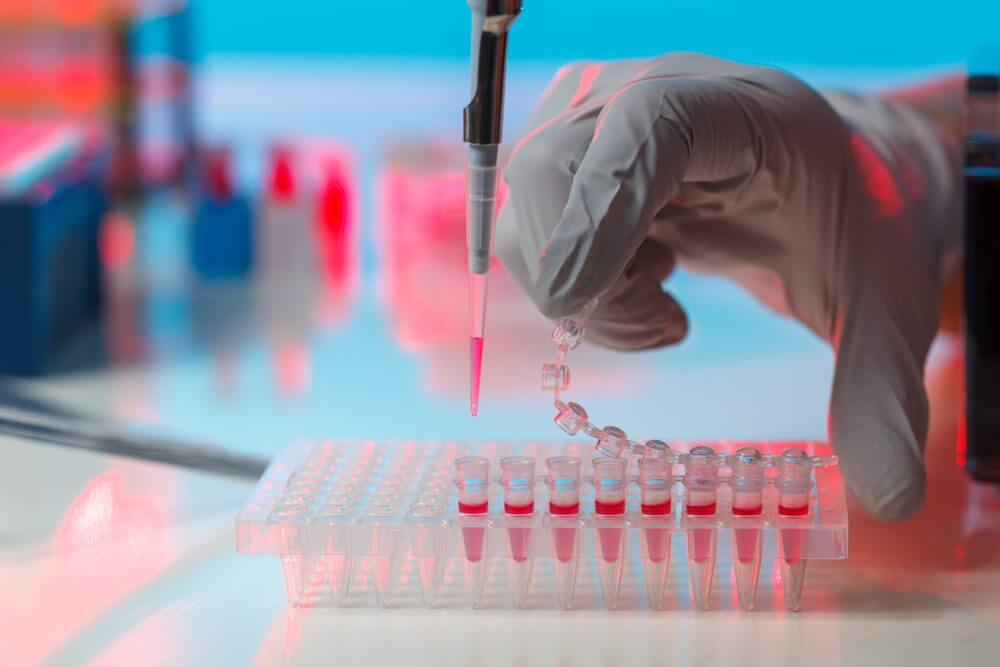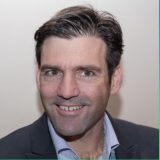Research and Clinical trials news

There has been a lot of recent activity in the field of PWS research in the last few months. These include studies showing differences in brain structure between those with and without PWS and how this might relate to behavioural problems; differences in growth patterns between sub-types of PWS (deletion vs non-deletion); PWS mouse models that indicate chromosomal deletion could be a cause of sleepiness and hunger; and evidence that Growth Hormone (GH) treatment into early adulthood is beneficial to body composition. Another study demonstrates the importance of careful dietary planning on maintaining normal fat levels in those with PWS.
This article briefly summarises research activities and clinical trials associated with PWS. Its intent is to make members aware of what is happening in this space. None of these studies is definitive and ongoing research is necessary. More information can be accessed through the links. Please seek appropriate professional medical advice before acting on any information provided here.
Waking ‘sleeping’ genes could help those with PWS
Research grants from the Prader-Willi Research Foundation of Australia and the US Foundation for Prader-Willi Research will enable Associate Professor Marnie Blewitt to investigate whether awakening ‘sleeping’ genes could overcome some of the genetic errors underlying Prader-Willi syndrome, and reduce the severity of some of its symptoms. The researchers hope that in the long-term new drugs could be developed that keep these key genes awake, improving the quality of life of people with Prader-Willi syndrome.

For more information please see here.
Newborn Experience Research
PWRFA recently launched its first ever grant for research proposals to support the newborn experience of children and families living with PWS. This grant generated a number of proposals and the Scientific Advisory Council will be announcing the successful candidates in the coming months.
Study links structure of the cerebellum in brains of those with PWS to behavioural problems
Researchers in Japan have shown that in those with PWS who participated in the study, certain parts of the brain differ from those without PWS. Specifically, people with PWS had a smaller cerebellum than individuals with typical development. There were also other differences identified.
These structural changes were shown to be significantly associated with different behavioural problems including hyperphagia; and autistic, obsessive and intellectual characteristics.
The findings also suggest that structural changes in the cerebellum contribute to impaired brain connectivity in PWS patients.
The researchers noted that larger studies were required to confirm these associations and better understand the underlying mechanisms of behavioural problems in people with PWS.
For more information please see here.
Differences in growth (mass and height) trajectories in genetic subtypes of PWS
A study from the Murdoch Children’s Research Institute in Melbourne has shown that the subtype of PWS (deletion or non-deletion) has an impact weight (mass) and Body Mass Index (BMI – a measure that considers height and weight). Using historically available height and weight data from the Victorian Prader Willi Syndrome Register (VPWSR), the researchers showed that weight and BMI were estimated to be higher in the deletion subtype compared to the non-deletion subtype, with the weight difference increasing with age. They also said that no data existed regarding diet, use of hormone therapy, and physical activity in these groups, which was a limitation in the study.
For more information see here.
Loss of gene associated with PWS linked to sleep and food irregularities in mouse model
A study on a PWS mouse model by researchers from Italy and Norway has shown a link between the loss of genetic information (Snord116) associated with PWS disrupts the control and transmission of nerve signals in part of the brain called the lateral hypothalamus (LH). Mice lacking the copy of Snord116 had excessive activity in nerve cells associated with sleep compared with animals without the Snord116 deletion, as well as suppressed activity in nerve cells associated with wakefulness under certain conditions of sleep deprivation. There was also a drop in the wakefulness hormone (orexin) in mice with the Snord116 deletion during eating, which could be linked to hyperphagia and obesity.
The researchers propose that an imbalance between the wakefulness and sleepiness hormones in the LH of mice with the Snord116 deletion reflects a series of deficits seen in those with PWS, such as food intake and temperature control.
The full research article can be seen here.
Dietary Planning Helps Maintain Normal Fat Tissue Levels in PWS Children
Perhaps unsurprisingly, this study by Japanese researchers showed evidence that for individuals with PWS who have regular dietary planning Subcutaneous Adipose Tissue (SAT – fat below the skin) is lower than those who did not adhere to a careful dietary plan. Visceral Adipose Tissue (VAT – fat found deep in the abdomen and around organs) was unaffected by the use of dietary planning.
The full research article can be found here.
Growth Hormone Use Beyond Childhood Aids Young Adults With PWS, Study Finds
A recent Dutch study investigating continuing or recommenced use of Growth Hormone (GH) in young adults with PWS over a 3-year period has shown its use to be beneficial in terms of body composition (lean mass to fat mass). As well as this, the study showed that these benefits of body composition could be restored after discontinuing GH for one year.
The full research article can be found here.
Clinical trials update
There are several research studies that are currently running in Australia which are looking to recruit patients. Clinical trials are an important and essential step in the development of new treatments for PWS. While PWFRA and PWSA Vic do not endorse or recommend any specific study, we do seek to provide information about trials for information and to give the opportunity of participation to those members who are interested. We encourage our families to follow the links to see if any of these projects are of interest. Contact details are included in the link if you are interested. http://praderwilli.org.au/clinical-trials
Hyperphagia trials
Enrolment in the Harmony Biosciences phase 2 trial of a drug called Pitolisant has again been delayed due to social distancing measures due to Coronavirus. Pitolisant is being trialled to evaluate its efficacy for treating daytime sleepiness in those with PWS. Recruitment of trial participants was due to commence at the beginning of March this year. Participants ranging in age from 6 to 65 will be sought once recruitment recommences. The study is looking for around 60 participants for an initial 11-week treatment phase.
For more information please see here.
Mindfulness-based intervention for temper outbursts (ages 13-30)
As reported in the previous edition of Laneway, this study is still recruiting participants. This study aims to evaluate mindfulness strategies for managing temper outbursts and anxiety in PWS. The study will be conducted remotely via phone, email and video conference.
The trial is 18 weeks in length and will involve an individual with PWS between the ages of 13 and 30 with a mild intellectual disability or normal IQ. Also required will be a parent or carer and a teacher or support worker. The carers and support workers will be trained to use and teach the mindfulness intervention, and will be asked to monitor the PWS participant’s behaviour over the course of the trial. For more information or to sign up to the trial please contact Lauren Rice on +61 2 9114 4106 or fhs.devpsych@sydney.edu.au
Acceptance and commitment training (ages 13-18) – still recruiting
Acceptance and Commitment Training (ACT) is an empirically-based psychological intervention that uses acceptance and mindfulness strategies mixed in different ways with commitment and behaviour change strategies to increase psychological flexibility (source Wikipedia). This training strives to accept rather than eliminate difficult feelings and move towards valued behaviour, or workability.
This study which is led by Dr Janice Forster and Dr Stuart Libman in the United States seeks fathers of children with PWS from age 13 to 18 to participate in a 4-session, on-line, small-group ACT training exercise to reduce father’s perception of stress, improve parenting satisfaction and increase family involvement. Participants must reside at home with their adolescent and the adolescent’s mother, have a computer with a camera, microphone and internet access, and agree to privacy and confidentiality of shared information.
For more details see here.
Phase 3 Levo Carbetocin Trial
The Phase 3 Carbetocin Trial – Queensland Children’s Hospital, Westmead Children’s Hospital and Randwick Hospital sites are ready to go, and other locations in Australia will be announced shortly. This trial studies the effect of intranasal (through the nose) delivery of carbetocin, on excessive eating and obsessive compulsive behaviours. Interestingly the US FDA (Food and Drug Administration) has recently fast tracked the designation of Carbetocin for phase 3 trials.
Read more about this here
The effect of Livoetide on food related behaviours in patients with PWS
These trails are held at Heildelberg Repatriation Hospital for patients 18+.
Tamara Debreceni 03 9496 4026 or Tamara.debreceni@unimelb.edu.au
Trials looking at the effect of Oxytocin has on the autonomic nevous system. Dr. Einfields Oxytocin study out of the University of Sydney that is recruiting patients aged 13-30 from Melbourne and Sydney : fhs.devpsych@sydney.edu.au
Prader-Willi Syndrome (PWS) is a rare, complex, unique, life-threatening multistage genetic disorder which affects 1 in 15,000 births and results in an abnormality of chromosome 15. PWS can have a significant impact on behaviour, learning, mental and physical health, community inclusion and social relationships. People with PWS exhibit high anxiety, complex and challenging behaviours and cognitive dysfunction throughout their lives. PWS is a spectrum disability, and the degrees of visual abnormality varies immensely. Many people with PWS also have psychiatric problems and autistic characteristics. A defining characteristic of PWS is hyperphagia, or a compulsion to eat. For more information visit www.pwsavic.org.au
Prader-Willi Syndrome Association of Victoria (PWSA Victoria) is a volunteer lead ACNC registered Australian Charity, with many volunteers having lived experience. Their role is to work closely with organisations around the world, whose vision and purpose align with their own, to ensure their local PWS community is well supported, while researchers around the world work hard to find a cure and viable treatments. The PWSA Victoria’s aim is to continue to break down barriers and create a world where everyone with PWS has access to the right tools, to enable them to live a full and inclusive life. For more information, please visit www.pwsavic.org.au
